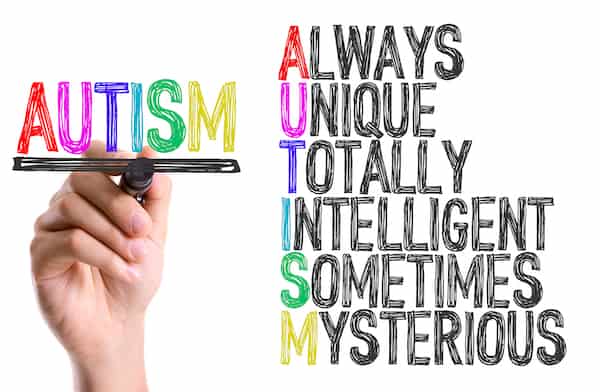It is estimated that there are 700,000 autistic people in the UK- that is more than 1 in 100. Autism can affect people from all nationalities, cultures, religious and social backgrounds. It is more prevalent in males than females with 1 out of every 88 children being diagnosed with an the autistic spectrum disorder.
The spectrum of people living with autism ranges from high- functioning professionals, such as doctors and engineers, to individuals who struggle to hold down a job due to the severity of their disorder. It is important to remember that a majority of people with autism have communication and anxiety issues to some degree.
As humans, we all resonate somewhere on the autistic scale and the signs may not always be obvious. The characteristics of autism vary from one person to another, however in order for a diagnosis to be made, a person will usually be assessed as having had persistent difficulties with communication and social interaction from an early childhood.
Autistic people do not have any visible disabilities and people who do not understand autism or recognise the signs may say, for example, that a child is simply being naughty when it is expressing frustration etc..
Autism is a lifelong developmental disability that affects how people understand the world and interact with others. It is not an illness or disease and cannot be ‘cured.’ Despite that, there are many interventions that effectively help autistic people with their lives.
Hypnotherapy is one of these and has been proven to help people with autism by helping them:
- Overcome depression
- Overcome anxiety
- Manage OCD
- Improve communication
- Improve self – esteem
- Gain confidence
- Tackle social phobias
Treatment is highly individualised and therapists need to be aware of the concrete nature of autistic peoples thinking, taking into account that they may not relate to the nuances of communication that typify general conversation.
With thought and an individualised approach, patients anywhere on the autistic spectrum can and do benefit from hypnotherapy.
By Michelle Hill
The Mind’s Eye London

